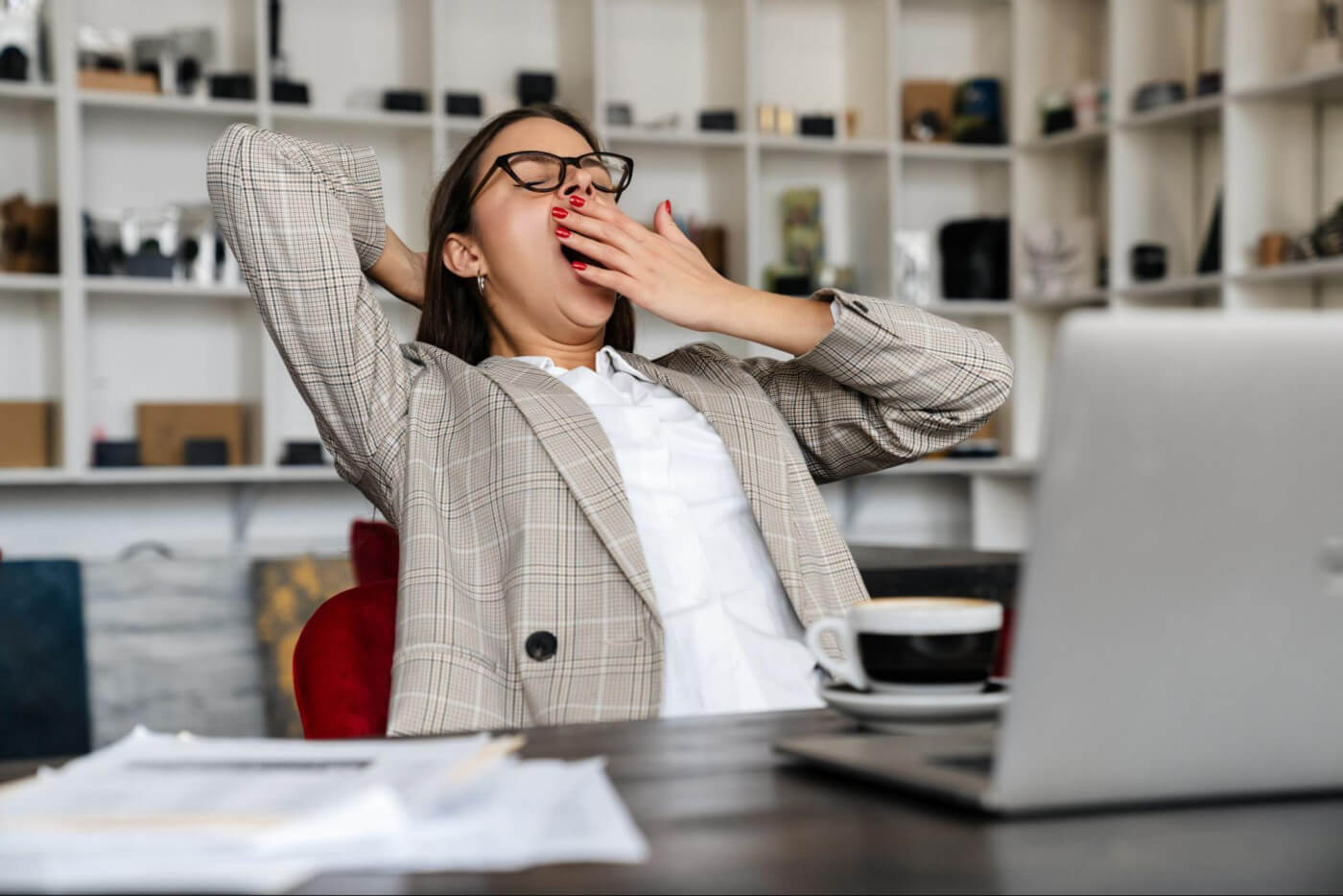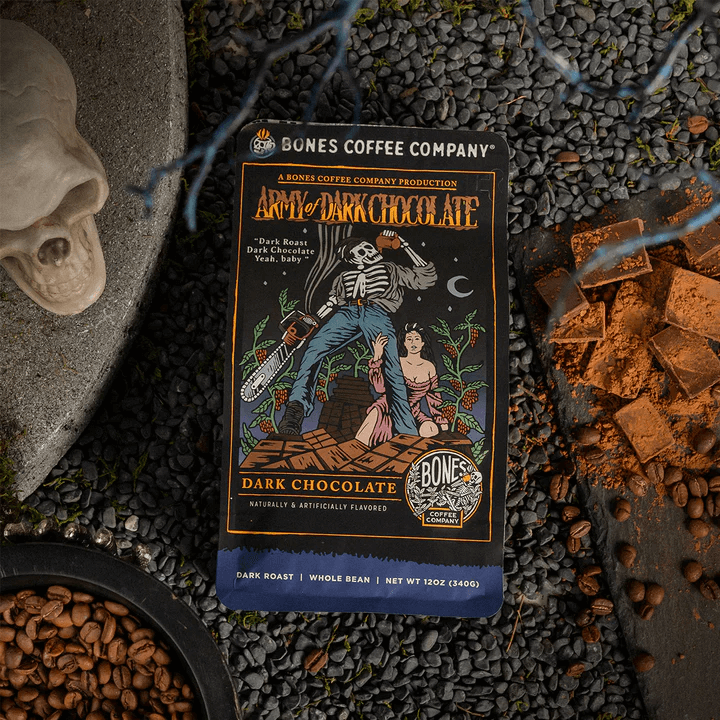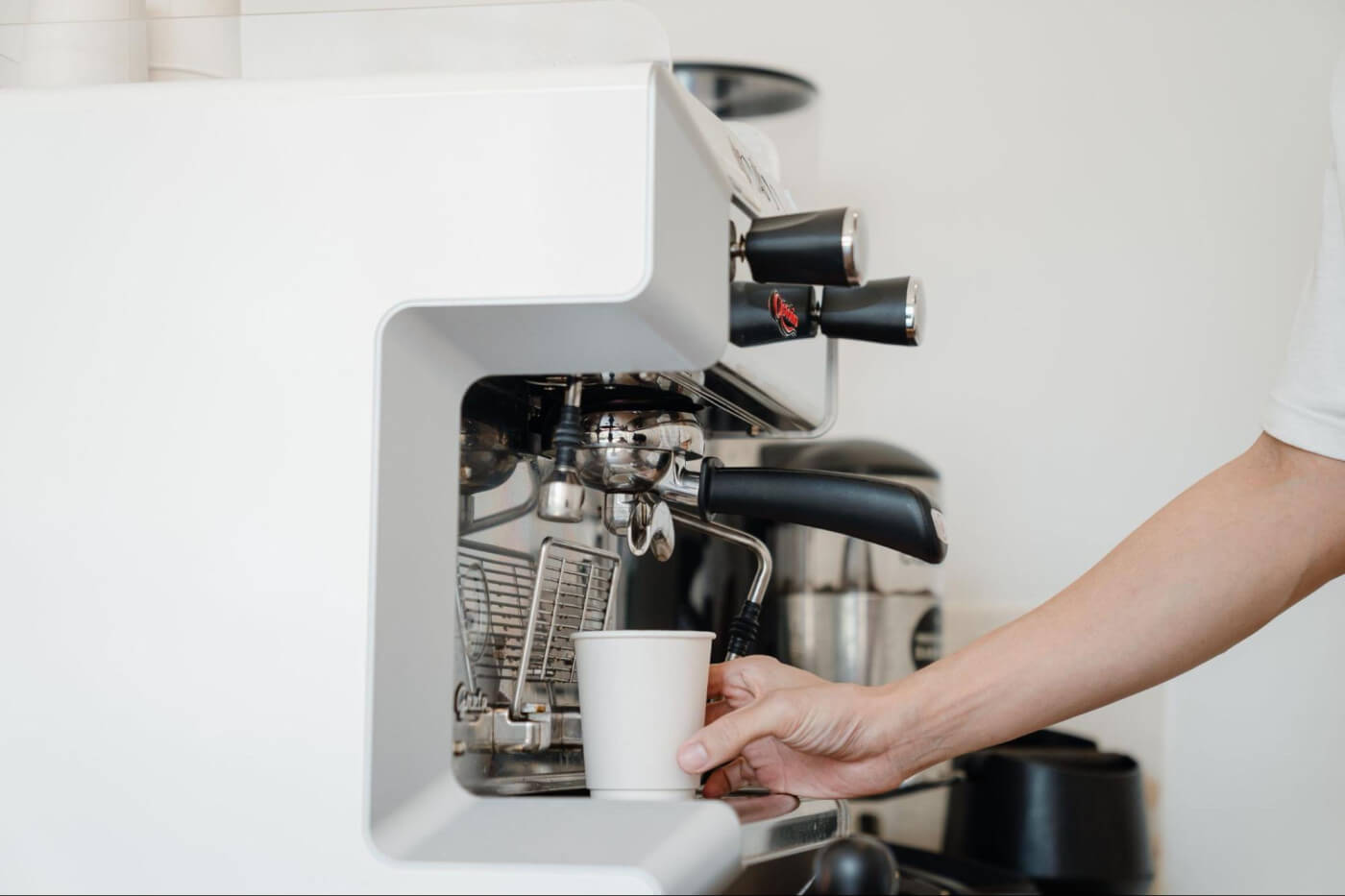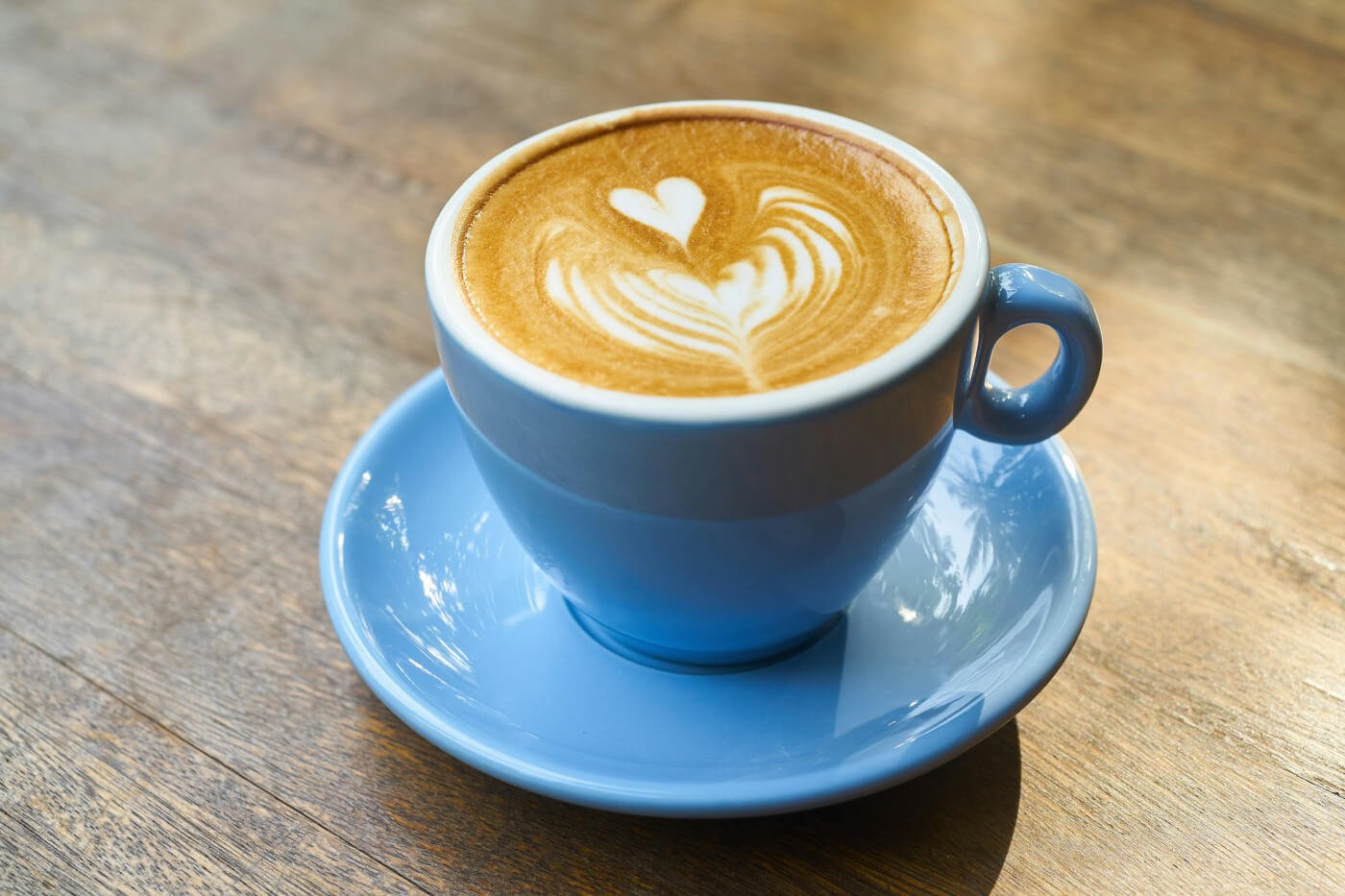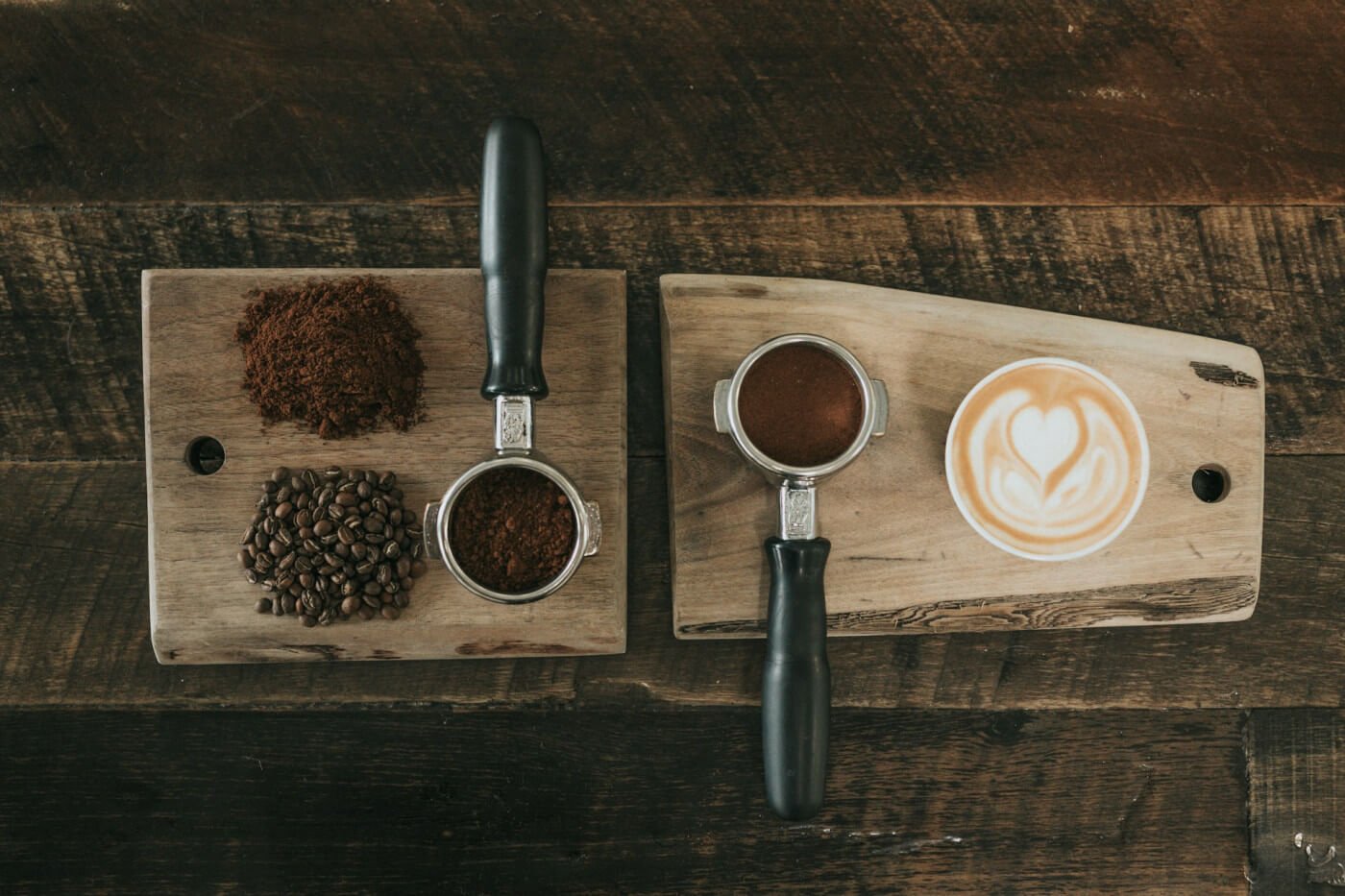Have you ever asked yourself: Why does coffee make me sleepy? Thankfully, you’re not alone in solving the mystery of how much caffeine affects your alertness.
Although coffee is widely known to make one feel awake and stay awake, it can have the opposite effect on others. Paradoxically, drinking coffee can make some individuals feel tired and sleepy after. This seemingly contradictory response to drinking coffee can be attributed to several factors related to the body’s physiological response to caffeine, the primary active ingredient in a cup of coffee.
Caffeine, a familiar stimulant found in coffee, tea, and various energy drinks, plays a pivotal role in our daily routines. Coffee blocks drowsiness and boosts alertness, making “morning coffee” a popular daily ritual for millions worldwide.
However, the effects of drinking coffee are not one-size-fits-all; they can vary significantly from person to person. Let's delve into how a cup of coffee affects the body and the factors involved in that.
How Caffeine Works
At its core, caffeine functions is a central nervous system stimulant. Its primary mechanism of action involves blocking the neurotransmitter adenosine. Adenosine levels gradually increase in the brain during waking hours, causing sleepiness or tiredness.
By inhibiting adenosine's action, caffeine temporarily pushes back drowsiness, restoring a sense of alertness and focus and helping you overcome tiredness. This process, however, is subject to individual variation, leading to differing effects across the population.
Consuming Caffeine: Factors Influencing Its Effects
People who drink caffeine-infused beverages experience various effects depending on their bodies. Several key factors play a role in how our bodies respond to caffeine:
Caffeine Tolerance
When you regularly consume coffee, it can lead to caffeine tolerance. For those who drink coffee habitually, the stimulating effects of caffeine may diminish over time.
Caffeine tolerance is due to the body's adaptation to consistent caffeine intake, producing more adenosine receptors. As a result, once the caffeine wears out, an individual might feel more susceptible to the sleep-promoting effects of adenosine, leading to increased feelings of fatigue.
Sleep-Wake Cycle Disruption
Caffeine's ability to disrupt the natural sleep-wake cycle, or circadian rhythm, is another critical consideration.
Drinking coffee or consuming caffeine-laden products late in the day can cause trouble sleeping. This interferes with sleep quality, especially in children, causing sleepiness the following day. This disruption can offset the initial energizing benefits of caffeine.
Adrenaline and Energy Crashes
Caffeine can prompt a short-term surge in adrenaline, contributing to its energizing effects. However, as the adrenaline wears off, individuals may experience a significant "crash" in energy levels, which can make them sleepy instead.
Diuretic Effect and Hydration
Caffeine possesses diuretic properties, which means the body experiences fluid loss faster. If fluids are not adequately replenished, this can lead to dehydration, which can make you feel sleepy, tired, and fatigued. That is why you must stay hydrated while consuming caffeinated beverages.
Try This: When getting your midday caffeine boost, be strategic with timing. Aim for a quick pick-me-up coffee break before 2 PM to avoid interference with your sleep cycle. This ensures that caffeine has sufficient time to metabolize before bedtime. |
How Does the Type and Amount of Coffee I Drink Affect My Sleepiness?
If you enjoy drinking coffee, understanding how much caffeine is in it and its effects on your body is crucial for managing your sleep patterns.
The relationship between caffeine intake and levels of sleepiness is complex and influenced by various factors. From the type of coffee to the timing of consumption, each element plays a significant role in determining the overall effect on an individual's alertness and sleep cycle.
Coffee Type and Caffeine Content
Different types of coffee contain varying levels of caffeine.
For instance, a standard 50ml serving of espresso contains approximately 145 mg of caffeine. In contrast, a 250ml serving of instant coffee (1 teaspoon per serving) contains just about 80 ml of caffeine.
Preparation Method
The method of preparing coffee also affects its caffeine content.
Cold brew coffee, known for its longer steeping time, often contains more caffeine than hot brewed coffee. Its higher caffeine content could lead to greater alertness but also a more pronounced crash in energy levels as the caffeine wears off. This can make you sleepy instead.
Volume of Caffeine Consumption
People who drink plenty of caffeinated beverages in a single sitting can experience a caffeine overload. Consuming a higher caffeine content can initially increase alertness, but this also negatively affects the central nervous system. It’s then followed by a series of symptoms that include:
- Headaches
- Nausea
- Heart palpitations
- High blood pressure
- Anxiety
- Upset stomach
Conversely, moderate consumption spread throughout the day can help maintain steady alertness without excessive sleepiness but won’t leave you feeling sleepy.
Timing of Consumption
The time of day when you drink coffee significantly dictates whether you feel tired after or not.
Consuming coffee late in the day can disrupt the natural sleep-wake cycle, leading to poor sleep quality. This is why you would be feeling sleepy the next day.
The Role of Adenosine and Sugar in Coffee-Related Sleepiness
What is the Relationship Between Coffee and Adenosine?
Adenosine is a neurotransmitter in the brain that promotes sleep and relaxation. It works by binding to specific receptors in the brain, slowing down nerve cell activity and promoting feelings of tiredness. As the day progresses, the levels of adenosine in the brain rise, increasing the urge to sleep.
Caffeine, however, is structurally similar to adenosine and can bind to the same receptors in the brain. When caffeine binds to adenosine receptors, it blocks them, preventing adenosine from binding and inducing feelings of tiredness. This is why drinking coffee causes a temporary boost in energy and alertness, which is why people drink coffee to combat fatigue.
However, the body responds to the habit of regularly drinking caffeine by producing more adenosine receptors. This means that more caffeine is needed to block the increased number of receptors and achieve the same stimulating effects. Over time, this can lead to increased tolerance to caffeine. You would then need too much caffeine to feel alert, potentially leading to dependence.
Moreover, when the effect of caffeine wears off, there is a surplus of adenosine that can bind to the now unblocked receptors, which is how coffee makes you feel sleepy and tired–also known as a ‘caffeine crash.’
This is one of the reasons why some people feel sleepy after the stimulating effects of coffee wear off and eventually experience increased sleepiness in general after their caffeine tolerance develops.
Health Tip: Caffeine also increases heart rate. This temporary rise in heart rate can contribute to feelings of alertness but may also lead to increased anxiety or restlessness for some individuals. These feelings can negatively affect thinking, concentration, and even decision-making. Moderating your coffee intake can help manage these effects. |
What is the Role of Sugar in Coffee-Related Sleepiness?
Other variables, such as sugar can aggravate the effects of caffeine on the body.
Sugar, when added to coffee, can cause a spike in blood glucose levels. A spike in glucose levels provides a quick energy boost, often perceived as a “sugar rush.” However, this is typically followed by a rapid drop in blood sugar levels, known as a “sugar crash.” This sudden drop can lead to feelings of fatigue and sleepiness.
Secondly, the combination of sugar and caffeine can lead to a cycle of energy highs and lows throughout the day. Caffeine, a stimulant, can mask the effects of a sugar crash temporarily. However, as the effects of caffeine wear off, the sugar crash becomes more pronounced, leading to increased sleepiness.
Thirdly, the consumption of sugar-laden coffee can disrupt the body’s natural sleep-wake cycle. Excessive sugar intake can interfere with the release of melatonin, the hormone responsible for regulating sleep. This disruption can lead to poor sleep quality, which can cause daytime sleepiness.
Lastly, the body’s insulin response to sugar can also contribute to why you feel sleepy. High sugar intake prompts the body to produce more insulin to regulate blood sugar levels. This increased insulin production can cause an excess of the amino acid tryptophan in the brain, which is converted into serotonin and then into melatonin, both of which promote sleep.
While coffee itself can contribute to feelings of sleepiness, excessive consumption of sugar in general can exacerbate these effects due to its impact on blood sugar levels, the sleep-wake cycle, and the body’s insulin response.
Can Drinking Coffee Cause Insomnia or Other Sleep Disorders?
Coffee, a widely consumed beverage, is known for its stimulating effects due to its caffeine content.
However, prolonged or excessive consumption of coffee can potentially lead to sleep deprivation or actual disorders, including insomnia. The potential for coffee to cause insomnia or other sleep disorders can depend on several factors:
Quantity of Coffee Consumed
Consuming large amounts of coffee, particularly later in the day, can increase the likelihood of sleep disturbances. This is due to the long half-life of caffeine, which can remain in the system for several hours after consumption.
Individual Tolerance
Some individuals may be more sensitive to the effects of caffeine due to genetic factors or low habitual caffeine consumption. These individuals may experience sleep disturbances even with moderate coffee consumption.
Timing of Consumption
Drinking coffee close to bedtime can interfere with the ability to fall asleep, as the stimulating effects of caffeine can take several hours to wear off.
Presence of Sleep Disorders
Individuals with pre-existing sleep disorders may find that coffee exacerbates their symptoms. For example, those with insomnia may find it more difficult to fall asleep or stay asleep after consuming coffee.
Practice Self-Care: While coffee can potentially contribute to sleep deprivation and disorders, it’s important to note that not everyone who drinks coffee will experience these effects. It’s recommended to monitor your own response to coffee and adjust your consumption as needed to ensure healthy sleep patterns. |
Understanding Caffeine Withdrawal Symptoms
Reliance on caffeine can lead to withdrawal symptoms if intake is suddenly reduced or stopped. Recognizing and managing these withdrawal symptoms can make the process more manageable and less daunting.
Caffeine withdrawal is a recognized medical diagnosis and occurs because the body becomes accustomed to the daily intake of caffeine. When that intake is decreased, the body experiences a series of reactions due to the absence of caffeine's stimulatory effects.
When individuals who regularly consume coffee suddenly reduce or stop their caffeine intake, they may experience caffeine withdrawal symptoms, including:
- Fatigue
- Irritability
- Persistent headaches
- Sweating
- Muscle pain or stiffness
- Insomnia or sleep disturbances
- Nausea or vomiting
- Acid reflux
If you're considering reducing your caffeine intake, do so gradually until you’re at the recommended minimum amount. This is so you can minimize withdrawal symptoms and healthily manage your coffee intake. This mindful approach can help you better understand your body's needs and responses to caffeine, fostering a healthier relationship with your favorite beverages.
Alternatives to Coffee for a Morning Boost
While coffee reigns supreme in many morning routines, it's not the only path to invigoration. For those seeking a gentler lift or experiencing the caffeine paradox, exploring alternatives to drinking coffee can offer a refreshing change.
Here are three options that can be an adequate substitute to your morning coffee. These promise the same positive effects of coffee without its potential downsides:
Green Tea
Green tea’s caffeine content is lower than coffee, providing a smoother, more sustained energy boost without the jitters or crash. Additionally, green tea is rich in antioxidants, such as EGCG (epigallocatechin gallate), which supports overall health and well-being.
Matcha
Matcha contains more or less the same amount of caffeine as green tea but offers a more concentrated nutrient profile, including antioxidants, vitamins, and minerals. Matcha's unique component, L-theanine, works synergistically with caffeine to enhance focus and calmness, making it an ideal choice for those seeking alertness without agitation.
Herbal Teas with Energizing Properties
For a caffeine-free morning boost, herbal teas with energizing properties present an appealing option. Herbs like ginseng, peppermint, and yerba mate are known for their invigorating effects.
Decaf Coffee
Decaf coffee is a great choice for those sensitive to caffeine or managing the frequency they drink coffee. It lets you enjoy the rich flavors of coffee without making you feel tired or jittery. Plus, modern decaf options retain much of the taste and aroma of regular coffee, making it a satisfying alternative.
This coffee is just SO good! Ever since I reduced my caffeine consumption, I've been sad to not have a delicious coffee beverage in the afternoon. I ordered this for myself as a birthday present, based on my love of the caffeinated version. It's delicious and hits the spot! I love it!
- Jacob B.
Drink Coffee In Healthier Ways: Tailoring Your Coffee Experience
The realization that coffee makes us sleepy sometimes, contrary to its intended energizing effect, highlights the intricate way caffeine interacts with our bodies. This interaction varies greatly among individuals and is influenced by factors like caffeine tolerance, consumption timing, and the quantity of coffee we drink.
If you were previously wondering, “Why does coffee make me sleepy?”, now you’re armed with this important knowledge. We have the power to tailor our coffee habits to better align with our energy needs.
Experimenting with how much coffee we consume and when we drink it allows us to enjoy the wakefulness caffeine is meant to provide, avoiding the paradoxical effect of tiredness. Thoughtful adjustments in our coffee routine can lead to more consistent energy throughout the day.

